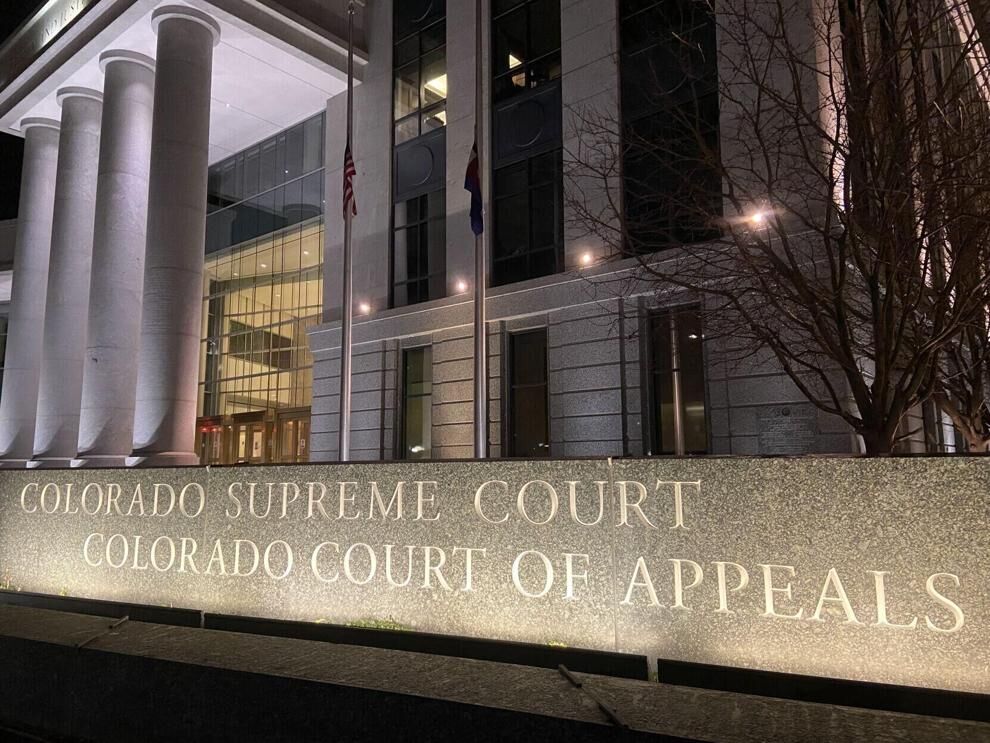Appeals court orders frozen embryos be turned over for destruction in case implicating religion

The state’s second-highest court ordered a divorced couple’s frozen embryos be turned over to the husband for destruction, finding an El Paso County judge disobeyed both the Colorado Supreme Court and Court of Appeals’ instructions for resolving disputes over fertilized eggs.
A three-judge panel for the Court of Appeals on Thursday issued its second decision in the long-running marital case between Jamie R. Fabos and Justin R. Olsen, focusing on District Court Judge Timothy J. Schutz’s award of the couple’s stored fertilized eggs to Fabos. Due to her religious beliefs, Fabos believed the embryos should be “given a chance at life,” and she advocated for donating their two remaining embryos to another couple for implantation.
Olsen objected to using the eggs with his genetic material for procreation. His attorney argued to the Court of Appeals that citing Fabos’ religious beliefs about fertilized eggs as a reason against discarding them would open the door to “personhood,” a concept which is not recognized in Colorado law.
“It’s a crack in the dam of reproductive rights,” Paige Mackey Murray told the the panel at oral arguments earlier this year. “It’s saying, ‘OK, we’re going to set the seed for finding life at conception in this case, so the next case that comes along can then use that as a basis for finding life at conception.'”
The appellate panel did not address that fear, but agreed that Schutz – who is now a Court of Appeals judge – inappropriately weighed Fabos’ religious beliefs when deciding to award her the pre-implanted embryos, or pre-embryos.
“The court weighted this factor based on wife’s deeply held personal views of the morality of discarding the pre-embryos,” wrote Judge Michael H. Berger in the June 23 opinion. “But regardless of whether such moral beliefs are religious or secular, they should not form part of the court’s consideration.”
The panel’s decision walked a tightrope between reproductive rights, religion and the hotly-disputed environment of a divorce proceeding.
Douglas Laycock, a law professor and religious liberty scholar at the University of Virginia, believed the appellate court reached a plausible outcome under difficult circumstances.
Fabos “has no more right to the embryos than (Olsen) does,” Laycock said. “She should be protected from having to do things that violate her religious beliefs, but the court is right that it cannot say that her views always prevail over his because her views are religious.”
Fabos and Olsen wed in March 2005. They both experienced medical conditions that made it unlikely they would conceive children. Ultimately, they opted for in vitro fertilization, which involved fertilizing Fabos’ eggs with Olsen’s sperm. Both of the eggs transferred into Fabos began to develop and she gave birth to twins. The two fertilized eggs remaining were frozen.
Before the procedure, the couple signed an informed consent agreement. The agreement provided for disposition of the embryos in the case of a death, their mutual death or Fabos reaching age 55. Both Fabos and Olsen agreed to donate the embryos to another couple under those circumstances.
However, in the event of divorce, the agreement stipulated only that the couple would need to decide what to do with the fertilized eggs, or else it would be the job of a judge.
Fabos filed for divorce in December 2012. At a hearing before Schutz in 2017, she and Olsen described their feelings on the embryos: Fabos was raised Catholic and her religion was a significant part of her life. She believed the embryos were human life and she wished to donate them. Fabos said she would not have gone through IVF if destruction of the surplus embryos were the outcome.
Olsen – who had no knowledge of his biological father’s name and no memory of him, and whose feelings of abandonment by his father persisted – said he vowed to have a meaningful presence in his children’s lives if he ever became a father. He wanted the embryos discarded because he did not wish to have a child who was genetically connected to him, but whom he would never know.
In a November 2017 order, Schutz acknowledged Colorado law does not view embryos as human life, but there was little in-state guidance for him in deciding what to do. He bemoaned the IVF agreement for leaving it to the courts to decide the outcome.
Nonetheless, Schutz recognized two approaches other states have taken. On the one hand, the Iowa Supreme Court adopted a policy of maintaining the status quo until the parties eventually come to an agreement. Other states employed a “balance of interests” test, weighing multiple relevant factors for each spouse.
Schutz opted for the latter approach and decided the balance weighed in favor of Fabos.
“The court found credible Petitioner’s (Fabos) testimony that she has a fundamental belief that these embryos are human life. While Petitioner’s perception on this issue is not in accord with existing legal precedent, that does not change the fact that this belief is at the core of petitioner’s sense of herself,” he wrote.
Schutz added that Fabos “is seeking to utilize the embryos for a productive purpose rather than simply discard them as Respondent (Olsen) proposes.”
Months after Schutz’s order, the Colorado Supreme Court handed down a key decision also involving frozen embryos, In re the Marriage of Rooks. Similarly, the divorced couple in the case disagreed about what to do with surplus fertilized eggs. The Supreme Court formally adopted the balancing test, directing judges to evaluate what spouses who want to keep the embryos intend to do with them, the hardship on the spouse wanting to avoid further children, and other relevant factors.
The Rooks case made no mention of religious beliefs. Justice Monica M. Márquez, writing for the majority, characterized frozen embryos as marital property “of a special character,” while cautioning that courts “avoid results that compel one party to become a genetic parent against his or her will except in rare circumstances.”
In May 2019, a Court of Appeals panel reversed Schutz’s order in the Fabos-Olsen case. The appellate court disagreed with Schutz’s characterization of donating the embryos as a “productive purpose,” and believed he weighed Fabos’ personal religious views too heavily. They returned the case for his reconsideration.
In a new, lengthy order 16 months later, Schutz reevaluated his findings using the Rooks decision as a guide. Fabos now argued that if she could not donate the embryos, she was willing to have them implanted in herself. Schutz dismissed that offer, saying it would complicate the already messy divorce and be unfair to Olsen. However, he once again found in Fabos’ favor.
Under one of the Rooks factors – Fabos’ intended use for the embryos – Schutz again referenced Fabos’ desire, in accordance with her religious convictions, to avoid destroying the embryos no matter what.
“The evidence is clear that Petitioner’s desire to preserve the pre-embryos is central to who she is as a person,” Schutz added.
The case headed to the Court of Appeals once more, with the focus on Fabos’ beliefs.
“The right to procreate is what we’re talking about,” said Judge Sueanna P. Johnson during oral arguments. “I guess I’m trying to make the distinction in my own mind of where is her right to procreate being violated here?”
Fabos’ lawyer, Theresa Sidebotham, responded that for her client, “the right to procreate is tied together with the life of the children.”
“But Colorado’s law says they are not children,” said Judge Jaclyn Casey Brown.
Berger, in the appellate court’s opinion, decided Schutz had improperly weighed Fabos’ religious beliefs for a second time, violating the first appellate panel’s instructions and going beyond the Supreme Court’s Rooks decision.
This was not, he added, “one of the rare circumstances in which a court may compel a party to procreate against their will.”
The panel directed the El Paso County District Court to award Olsen the fertilized eggs to discard.
The case is In Re the Marriage of Olsen.














